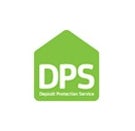Before you start the process of becoming a landlord there are several things to think about. Below is a list to help you get started. We do recommend that you call the office so that we can help you get started.
Who do I need to tell?
The Bank – if you have mortgage you will need to ensure that you have permission to rent the property, some lenders will not allow the property to be rented and it is possible that you will need to change your mortgage first. A quick call to them should clarify what you need to do.
Insurance Company – you must make sure that the property is correctly insured and the best way is to talk to a specialist company to help, we can give you the details of some if required.
Everyone else – if you have lived in the property don’t forget to set up mail redirection so that you can inform anybody that writes to you. Once the tenant moves in you cannot go back into the property without their consent, not even to pick up the post!
Is the property ready for someone to rent it?
EPC – it is now a requirement to provide the tenant with a copy of the Energy Performance Certificate when they move in. These must be completed by a qualified assessor
Gas Safety Certificate – a copy of the certificate must be given to the tenant when they move in. this check is then completed every 12 months, by a qualified Gas Safe engineer.
Furniture – we recommend that all properties be rented unfurnished.
Do I Have to Pay Tax on my income?
Your tax liabilities will depend on your personal circumstances, at the very least you will need to complete a self-assessment and return it to the Inland Revenue. If you are unsure or have other income it is advisable to speak with a tax advisor or accountant.
If you live overseas you will be subject to different criteria and will need to make arrangements with the Inland Revenue, we can go through this in more detail if required.
Who will be in my House?
The type of tenant will depend largely the property that you have to rent. You should consider who is likely to rent the property and ensure that your insurance and mortgage lender do not have any restrictions on who you can rent to.
What about pets?
Some properties are not suitable for pets, there may be restrictions in please in the lease, if the property is leasehold. Lots of families have pets and would not consider and property without being able to bring the pet too. We can put some extra restrictions in place to protect the property. We also ask that tenants pay an additional deposit and agree to have the property, including the carpets professionally cleaned when they vacate. We also carry out regular inspections throughout the tenancy and will check the condition of the property then.
Other Costs
During the tenancy, you will incur other costs, these can include repairs and maintenance of the property to loss of rent through non-payment or voids. The best way to manage this is to ensure that you have contingency fund so that you can carry out essential maintenance and meet all of your obligations.




